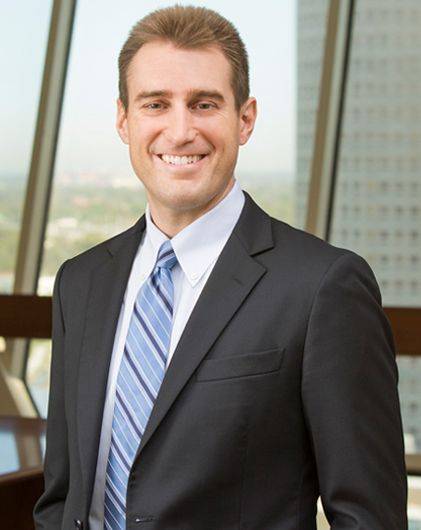What Florida High School Student-Athletes Should Know About FHSAA's NIL Bylaw
This alert was expanded for additional publication by Law.com under the title Florida High School Athletes and NIL Contracts: What You Need to Know.
On July 24, the Florida High School Athletic Association (FHSAA) approved changes to FHSAA Bylaw 9.9 which governs amateurism, and now, NIL for Florida high school student-athletes. These changes to Bylaw 9.9 will allow Florida high school student-athletes to profit from the use of their NIL while maintaining their high school athletic eligibility.
In recent years, litigation coupled with a shift in policy and legislation resulted in the amateur athletes obtaining the right to earn compensation for the use of their name, image and likeness (NIL). The NIL contracts, in the modern sense, emerged at the collegiate level, but now, high school student athletes in some states across the country can profit off of their NIL.
On July 24, the Florida High School Athletic Association (FHSAA) approved changes to FHSAA Bylaw 9.9 which governs amateurism, and now, NIL for Florida high school student-athletes. These changes to Bylaw 9.9 will allow Florida high school student-athletes to profit from the use of their NIL while maintaining their high school athletic eligibility.
The new bylaw highlights a “nonexhaustive list of permissible activities” for use of a Florida high school student-athlete’s NIL:
-
- Commercial endorsements.
- Promotional activities.
- Social media presence; or
- Product or service endorsements.
Now, Florida high school student athletes may be paid to endorse products, businesses, services or promote their own brand or content through social media and content creation.
While FHSAA’s NIL bylaw creates new opportunities, it inherently creates new risks. Specifically, Florida high school student athletes participating in the following activities may impact their amateur status:
-
- Competing for money or other monetary compensations.
- Receiving any award or prize of monetary value which has not been approved by the FHSAA.
- Capitalizing on athletic fame or performance by receiving money or gifts of a monetary nature.
- Signing a professional playing contract in any sport or hiring a registered agent to manage his/her athletic career, other than for the purpose of advising on NIL-related matters.
- Competing under an assumed name; or
- Accepting a NIL agreement that does not adhere to FHSAA Bylaw 9.9.
There are also categories of products and services that Florida high school student-athletes cannot engage in NIL activities, which include:
-
- NIL Collectives.
- Gambling, including sports betting, the lottery, and betting in connection with video games, online games, and mobile devices.
- Adult entertainment products and services.
- Alcohol, tobacco, vaping, and nicotine products.
- Cannabis products.
- Controlled substances.
- Prescription pharmaceuticals; and
- Weapons, firearms, and ammunition.
These restrictions in FHSAA NIL bylaw serve as limitation, and potentially a punishment.
What Happens if a Florida High School Student-Athlete Violates Any of These Rules?
-
- For a first offense: the student-athlete shall receive a formal warning. If applicable, the student shall immediately terminate/modify the NIL agreement, remove any advertisement, promotional activity, or endorsement, and return any awards, gifts, or other compensation.
- For a second offense: the student-athlete will be ineligible to represent any member school for a period of one year from the date of discovery.
- For a third offense, the student-athlete will be ineligible to compete in any interscholastic athletic contest in any sport for the duration of the student-athlete’s high school career.
In an effort to avoid impacts to eligibility or the punishments outlined above, the FHSAA encourages student-athletes and their families to seek legal counsel and tax advice when considering any NIL activities.
What High Schools, Universities, Colleges, Coaches, Collectives and Other Third Parties Should Know about FHSAA’s NIL Bylaw for High School Student-Athletes.
NIL activities must not be used to recruit. Specifically, NIL activities shall not be used to pressure, urge, or entice a student-athlete to attend a school for the purpose of participating in intercollegiate athletics. Furthermore, NIL agreements shall not be used as a guise for athletic recruiting.
Notably, an NIL agreement with a Florida high school student-athlete is limited to the student-athlete’s high school period of athletic eligibility and shall not extend beyond a student-athlete’s high school graduation date.
Lastly, contracting with a minor brings its own set of checks and balances. Typically, in Florida, a minor, which is considered as a person under the age of 18, lacks the capacity to enter a contract on their own. There are certain exceptions under Florida law where a minor could enter a contract under limited circumstances. Specifically, a contract may be approved by a division of the circuit court that has guardianship jurisdiction. In the absence of court approval, any NIL contracts with a minor in Florida will require the signature of the minor high school student-athlete’s parent or guardian.
Nicholas Patti is a former collegiate student-athlete and is currently a licensed athlete-agent in the State of Florida.
Please contact Rhett Parker or any member of Phelps’ Litigation team if you have questions or need compliance advice and guidance.


